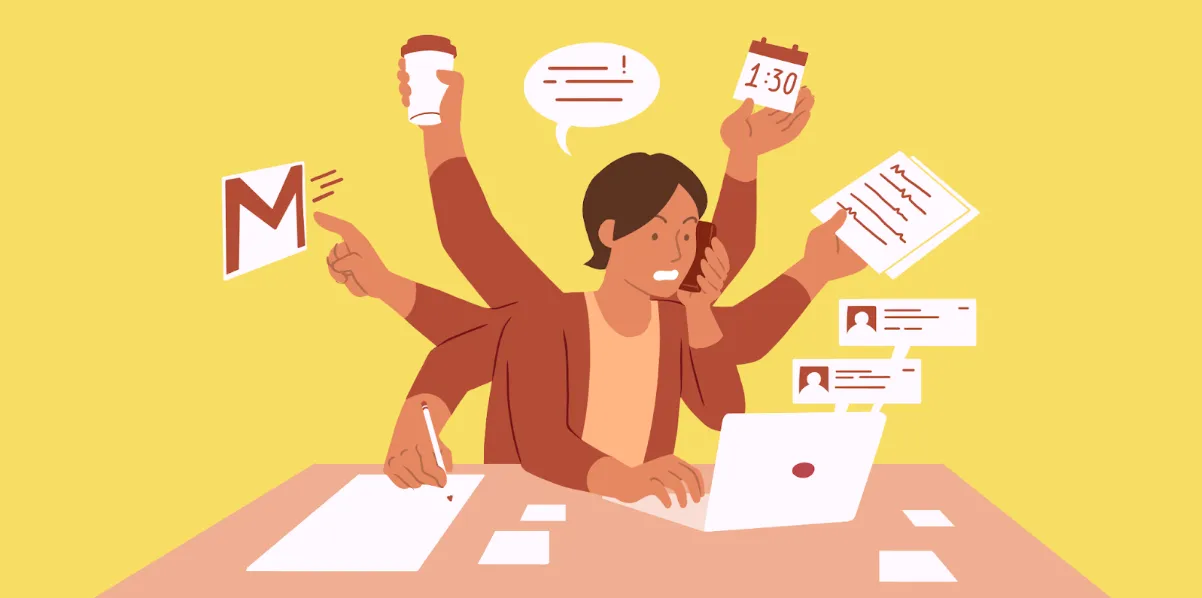“Hey! You should finish your meal first and do your homework later. Don’t do them simultaneously!” my mum yelled.
Most people multitask, even unconsciously. A quick google search will reveal that 92% of Gen Z (people who were born from 1997 to 2012) multitask. They eat while listening to music, talking on the phone. Some even dance while scrolling through their phones. We are extremely capable of performing many tasks at the same time.
But what exactly is multitasking? Multitasking is when you perform two or more tasks simultaneously, switching between a task to focus on another, while still keeping the other one in mind.
But how does our brain multitask exactly?
Anytime you need to pay attention, the prefrontal cortex in your brain starts to function. By communicating with other brain systems, the prefrontal cortex allows you to maintain focus on a single objective. By working on a single task, both sides of your prefrontal cortex start to collaborate harmoniously. When you start to multitask, the left and right sides of the brain must operate separately.
The result from the brain function separating from each other causes us to forget details and make more mistakes when given the task simultaneously.
But of course, it is easier to be doing daily life activities like eating and walking than complicated tasks like texting while driving as our prefrontal cortex is in less demand, creating an easier switch when those simple tasks are performed.
So, is multitasking a skill you should keep developing? Or is it something you should avoid entirely? There are both pros and cons.
Benefits of multitasking:
B etter-time management - You can be quicker and more efficient in time managing throughout the working day.
Better reactions to complex jobs- A person who can multitask would find it easier to tackle more complicated problems.
Less procrastination - Multitasking keeps your mind active so it’s likely to avoid distractions which can lead to procrastination.
More brain power - Our brain is like our body, multitasking can lead to development of mental stamina.
However, looking on the opposite side of multitasking there are several disadvantages like:
Lower your efficiency - As the brain struggles to distinguish between the things that are urgent, important or necessary. Multitasking is less efficient because it takes extra time to shift mental gears when the person switches tasks.
Greater risk of errors - Paying attention to several things at once can lower concentration.
Increase in stress levels - Attempting too many tasks could produce a sense of panic which lead to stress. Moreover, when brain muscle becomes tired this can lead to headache, due to too much muscle contraction.
Memory can become compromised - A report from University of California says that multitasking can reduce your ability to remember information.
Digging in deeper. According to a University of London study, those who multitask while performing cognitive tasks (undertakings that require a person to mentally process new information e.g memory, visual processing and problem-solving) see a similar fall in IQ as people who experience sleep deprivation. Some of the test subjects even saw a 15-point decline in IQ, bringing their score down to that of an 8 -year-old child. Furthermore, the researchers at the University of Sussex in the UK had compared the amount of time people spend using various devices (e.g texting while watching TV) to the MRI (Magnetic Resonance Imaging) scans of their brains. The results showed that the people who multitask frequently had less anterior cingulate cortex brain density , a part of the brain in charge of emotional and cognitive control as well as empathy as well as cognitive and emotional control.
This might be one of the reasons why we see articles that are titled “Why smart people don’t multitask”. Nevertheless, no one can stop you from multitasking. In my opinion, multitasking can even be efficient and necessary on some occasions.

